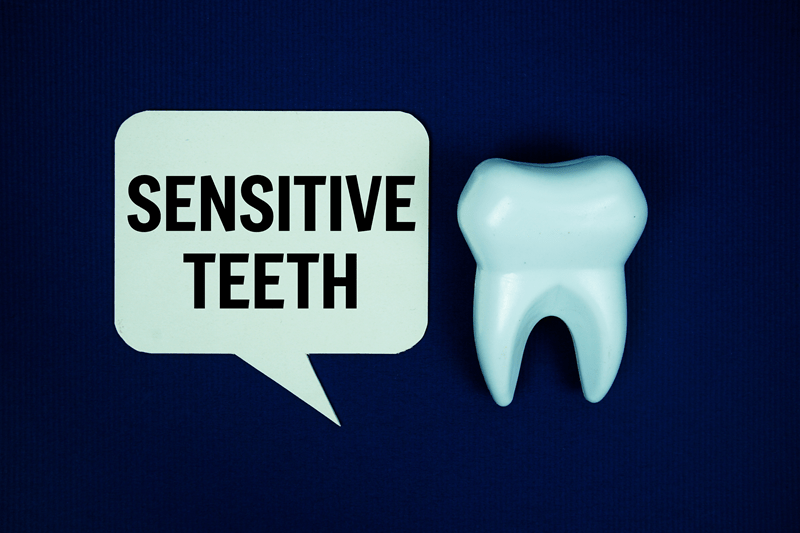
Sensitive teeth can bother someone during normal things like drinking water or eating a small snack. This guide explains how to care for sensitive teeth in a simple way so anyone can follow it. It also looks at dental care for sensitive teeth, daily habits, and practical tips that make the mouth feel calmer. The content includes sensitive teeth care and sensitive teeth early on because these phrases help readers find the information easily.
Dental care for sensitive teeth starts with knowing why the teeth react so quickly. Many people notice sudden sharp feelings because the outer layer of the tooth becomes weak or because the gums slowly move down over time. When that layer opens up, the dentin underneath gets exposed. And dentin reacts fast to cold, heat, sweet foods, or even air.
With simple dental care for sensitive teeth, the pressure on those exposed spots becomes lighter. It is not about complicated steps. Just small things that build a steady routine. This routine helps reduce the number of times sensitivity shows up. People often feel a difference when they follow this care every day without skipping too much.
Sensitive teeth care works when it becomes part of someone’s day, not just something they try once and forget. Simple steps tend to help more than anything else. These steps protect the enamel, support the gums, and reduce the kind of irritation that can show up during meals or brushing.
Below are clear and simple habits that make sensitive teeth care easier to follow.
You should use soft movements when brushing instead of hard strokes. Cleaning the gums lightly is also important to keep it healthy. Gentle brushing helps protect the enamel each day.
A quick rinse with water after meals helps wash away acids and prevents the sensitive spots from staying irritated for long. This small step supports the entire mouth.
Drinks with acids can soften the enamel for a short time. Waiting around 30 minutes before brushing helps protect it. This will prevent the long-term enamel strength.
These steps build a soft and steady process for sensitive teeth care.
Gum care mouthwash for sensitive teeth can add support to a daily routine. It reaches spots that brushing might miss and helps keep the gums healthy. When gums stay strong, the roots of the teeth stay covered, which reduces sensitivity over time.
Using gum care mouthwash for sensitive teeth does not need extra effort. The tips below explain simple ways to use it correctly.
These steps help gum care mouthwash for sensitive teeth become more effective.
Long-term protection for sensitive teeth comes from daily habits that support enamel strength and gum stability. These habits do not have to be perfect. Even small changes help reduce the number of sensitivity triggers someone feels through the week.
These long-term steps help sensitive teeth stay more stable and calmer.

Teeth sensitivity appears for many reasons. Sometimes enamel wears down from years of brushing too hard. Sometimes gums move downward because of gum issues or habits like rough cleaning. Other times, cracks, small chips, or cavities expose sensitive areas.
Even dental cleaning or whitening can cause temporary sensitivity. Knowing these reasons helps someone face the problem early. When the cause becomes clear, the steps to fix it also become easier to follow. Sensitive teeth usually point to a place in the mouth that needs steady attention, not sudden changes.
What a person eats plays a strong role in how their teeth feel. Certain foods protect the enamel, while others create small challenges through the day. Building a simple eating routine helps reduce sudden reactions.
Here are easy eating habits that support sensitive teeth.
Water helps you to remove acids from the teeth naturally and keeps the mouth comfortable after meals. It also helps you to wash away the leftover food.
Snacks like bananas or yogurt feel gentle on the teeth because they reduce the chance of irritation. These snacks help you to keep the mouth calm.
Healthy eating habits like these help maintain enamel strength.
Cleaning methods matter when dealing with sensitivity. Strong pressure or harsh tools can make things worse. Safe and slow cleaning supports both the teeth and the gums and gives better long-term results.
Here are simple cleaning steps to follow:
You should use soft brushes to protect the enamel and replace them regularly to keep brushing smooth. Always remember hard brushes may push the gums down over time.
Follow a proper routine like brushing twice a day with gentle strokes. It is important to understand that long sessions or aggressive brushing can be harmful. Therefore, you should have a calm routine to protect the sensitive areas.
You should move the floss gently between teeth to avoid snapping the floss down too fast. This will protect your gums from irritation.
These safe cleaning methods help avoid sudden sensitivity.
Caring for sensitivity becomes easier through simple steps and steady habits. Gentle brushing, mindful eating, and daily gum care help protect the enamel. With regular routines and basic choices, sensitive teeth stay more comfortable and easier to manage over time.
This content was created by AI